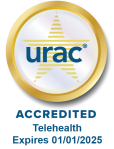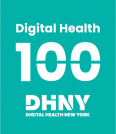Sharon Miller, LCSW-R, CCM, Vice President of Clinical Operations at UCM Digital Health
“The care coordinator really acts as a partner in the patient’s healthcare. We take the stress and anxiety out of the healthcare system and do the work for our patients.” – Sharon Miller
Feeling confused and frustrated trying to navigate the ins and outs of getting thorough, high-quality, affordable healthcare is something likely everyone has experienced and never wants to experience again. When you aren’t feeling your best, the last thing you want to worry about is whether or not the doctor is in-network, or how much it’s going to cost you to receive the care that you so urgently need. You just want a timely and convenient solution to getting treated.
As an employer or a health plan, you don’t want this experience for your employees or your members. You want them to stay healthy, have the resources and information that they need to get healthy when they are sick and have a positive healthcare experience. You want to provide a best-in-class experience that reduces friction and barriers to getting care.
At UCM Digital Health, we are solving these challenges and addressing patient needs with our team of care coordinators and with our unique approach. Our care coordinators pride themselves on being on the side of the patient and making the entire process as easy as possible for them. They go above and beyond to provide high-touch, personalized care and service.
We only hire top talent based on a skills assessment and look for individuals with prior medical, case management, or customer service experience. Our team is 100% US based and receives extensive hands-on training. Care coordinators are embedded as part of the UCM care team, meaning that they work hand in hand with our medical and mental health providers to coordinate care for the patient.
Care coordinators assist with ordering prescriptions, including arranging for prescription delivery. They will find in-network labs, imaging centers, and will arrange for bloodwork or radiology, when needed. They will make referrals to in-network providers or to the patient’s preferred provider. Care coordinators can order durable medical equipment, like a nebulizer, on behalf of the patient. They will even make additional appointments on behalf of the patient, either with a UCM provider, their community primary care provider, or a new or existing specialist – taking that extra step to make it easier for our patients. At UCM, 100% of our patients receive a follow-up call from our care team after a consultation.
When a patient contacts us for a consultation, a care coordinator is often the first person to engage with the patient. He or she will triage the patient, assess their needs, understand their symptoms and level of urgency. If the patient is in crisis, or having a true emergency, the care coordinator will immediately transfer him or her to a medical or mental health provider, depending on the situation. No time will be wasted on hold or with a call back to the patient before they can reach a doctor or counselor for treatment.
If social determinants of health are identified during a patient consultation, our team will connect the patient with community resources or organizations like Meals on Wheels. They will arrange for transportation if that is a barrier and can provide home care referrals. For patients diagnosed with mental health conditions, they can connect them to support groups and other resources.
For patients who have been identified for outreach by their health plan or employer group, we are doing the follow-up to get those patients engaged in their own health. For instance, if there is a group of employees or health plan members who have not had a routine preventive exam in a long time or have a chronic condition and may be in need of additional support, the UCM care team will contact them to initiate care or follow-ups like ordering lab work. This can be particularly effective in closing gaps in care and keeping populations healthy and engaged. And, we are able to reduce the burden, and often the cost as well, for the health plan or employer.
“Our care coordinators will be as involved or not involved as our patients want them to be, so it’s a really personal approach. This is what really sets us apart.”, says Sharon.






